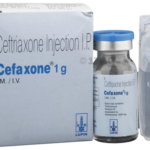How To Give Risperidone Injection

Risperidone extended-release (long-acting) injection is used to treat schizophrenia (a mental illness that causes disturbed or unusual thinking, loss of interest in life, and strong or inappropriate emotions). Risperidone is also known as a second-generation antipsychotic (SGA) or atypical antipsychotic.
Risperidone extended-release injection is used alone or in combination with lithium (Lithobid) or valproate (Depacon) to treat people who have bipolar I disorder (manic depressive disorder; a disease that causes episodes of depression, episodes of severe mania, and other abnormal moods).
Risperidone is in a class of medications called atypical antipsychotics. It works by changing the activity of certain natural substances in the brain. Risperidone rebalances dopamine and serotonin to improve thinking, mood, and behavior.
Symptoms of schizophrenia include:
- Hallucinations — imagined voices or images that seem real
- Delusions — beliefs that are not true (e.g., other people are reading your thoughts)
- Disorganized thinking or trouble organizing your thoughts and making sense
- Little desire to be around other people
- Trouble speaking clearly
- Lack of motivation.
Risperidone may help some or all of these symptoms.
What should I tell my health care provider before I take this medicine?
They need to know if you have any of these conditions:
• dehydration
• dementia
• diabetes
• difficulty swallowing
• heart disease
• history of breast cancer
• history of stroke
• irregular heartbeat
• kidney disease
• liver disease
• low blood counts, like low white cell, platelet, or red cell counts
• low blood pressure
• Parkinson’s disease
• seizures
• an unusual or allergic reaction to risperidone, paliperidone, other medicines, foods, dyes, or preservatives
• pregnant or trying to get pregnant
• breast-feeding.
Are There Specific Concerns About Risperidone And Pregnancy?
If you are planning on becoming pregnant, notify your healthcare provider to best manage your medications. People living with schizophrenia who wish to become pregnant face important decisions. This is a complex decision since untreated schizophrenia has risks to the fetus, as well as the mother. It is important to discuss the risks and benefits of treatment with your doctor and caregivers.
Antipsychotic use during the third trimester of pregnancy has a risk for abnormal muscle movements (extrapyramidal symptoms [EPS]) and/or withdrawal symptoms in newborns following delivery. Symptoms in the newborn may include agitation, feeding disorder, hypertonia, hypotonia, respiratory distress, somnolence, and tremor; these effects may be self-limiting or require hospitalization.
Caution is advised with breastfeeding since risperidone does pass into breast milk.
How To Give Risperidone Injection
Risperdal Consta® (risperidone long-acting injection) should be administered every two weeks by deep intramuscular deltoid or gluteal injection using the appropriate safety needle. For deltoid administration, use the 1-inch needle alternating injections between the two arms. The medication effects last for approximately 2 weeks. If you are new to taking Risperdal Consta® (risperidone long-acting injection), your health care provider may want you to take the tablet form or risperidone daily for up to 3 weeks.
Perseris® (risperidone long-acting injection) should be received every month. It should be administered by your health care professional through an injection under the skin of your abdominal area. After establishing tolerability with oral risperidone, you may be switched to Perseris® (risperidone long-acting injection). Supplemental oral risperidone is not recommended after receiving your first Perseris® (risperidone long-acting injection) dose. After receiving the injection, you may have a lump for several weeks that will decrease in size over time. It is important that you not rub or massage the injection site and to be aware of the placement of any belts or clothing waistbands.
What Happens If I Miss A Dose Of Risperidone?
If you miss a dose of Risperdal Consta® or Perseris® (risperidone long-acting injections), see your healthcare provider to receive your dose as soon as possible.
What Should I Avoid While Taking Risperidone?
Avoid drinking alcohol or using illegal drugs while you are taking risperidone. They may decrease the benefits (e.g., worsen your confusion) and increase adverse effects (e.g., sedation) of the medication.
What Happens If I Overdose With Risperidone?
If an overdose occurs, call your doctor or 911. You may need urgent medical care. You may also contact the poison control center at 1-800-222-1222.
What should I watch for while using this medicine?
Tell your doctor or healthcare professional if your symptoms do not start to get better or if they get worse. Visit your doctor or healthcare professional for regular checks on your progress. It may be several weeks before you see the full effects of this medicine.
You may get dizzy or drowsy. Do not drive, use machinery, or do anything that needs mental alertness until you know how this medicine affects you. Do not stand or sit up quickly, especially if you are an older patient. This reduces the risk of dizzy or fainting spells. Alcohol can increase dizziness and drowsiness. Avoid alcoholic drinks.
This medicine can reduce the response of your body to heat or cold. Dress warm in cold weather and stay hydrated in hot weather. If possible, avoid extreme temperatures like saunas, hot tubs, very hot or cold showers, or activities that can cause dehydration such as vigorous exercise.
This medicine may increase blood sugar. Ask your healthcare provider if changes in diet or medicines are needed if you have diabetes.
What side effects may I notice from receiving this medicine?
Side effects that you should report to your doctor or health care professional as soon as possible:
• allergic reactions like skin rash, itching or hives, swelling of the face, lips, or tongue
• abnormal production of milk
• breast enlargement in both males and females
• breathing problems
• changes in emotions or moods
• difficulty moving, slow movements, tremor
• fever or chills, sore throat
• males: prolonged, painful erection
• missed or irregular menstrual periods
• muscle pain, spasms
• pain, redness, or irritation at site where injected
• problems with balance, talking, walking
• redness, blistering, peeling, or loosening of the skin, including inside the mouth
• restlessness, pacing, inability to keep still
• seizures
• signs and symptoms of a dangerous change in heartbeat or heart rhythm like chest pain; dizziness; fast or irregular heartbeat; palpitations; feeling faint or lightheaded, falls; breathing problems
• signs and symptoms of high blood sugar such as being more thirsty or hungry or having to urinate more than normal. You may also feel very tired or have blurry vision
• signs and symptoms of low blood pressure like dizziness; feeling faint or lightheaded, falls; unusually weak or tired
• signs and symptoms of a neuroleptic malignant syndrome such as confusion; fast or irregular heartbeat; high fever; increased sweating; stiff muscles
• signs and symptoms of tardive dyskinesia such as uncontrollable head, neck, arm, or leg movements
• sudden numbness or weakness of the face, arm, or leg
• tremor
• trouble swallowing
Side effects that usually do not require medical attention (report to your doctor or health care professional if they continue or are bothersome):
• constipation
• dry mouth
• drowsiness
• tiredness
• trouble sleeping
• upset stomach
• weight gain.
This list may not describe all possible side effects. Call your doctor for medical advice about side effects. You may report side effects to FDA at 1-800-FDA-1088.





